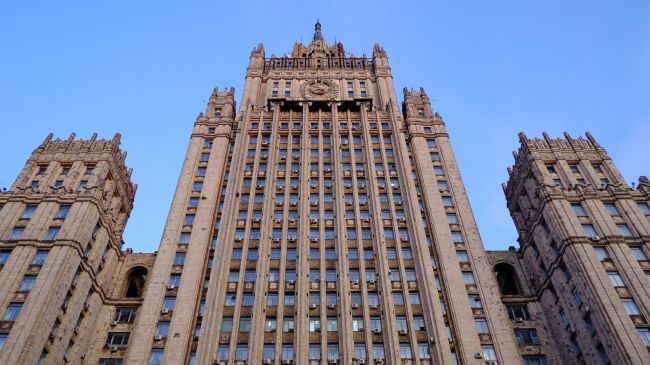
Russia 10 years after sanctions introduced
In 2024 it will be ten years since the West introduced the first anti-Russian sanctions - after Crimea's reunification with Russia. Since then, tens of thousands of other restrictions have been introduced, counting on the complete collapse of the Russian economy and the strategic defeat of our country. But the final effect was quite different.
At first, Western sanctions were local. They were more of a political gesture - they provided for the freezing of assets and the introduction of visa restrictions on individuals from the Russian leadership and the largest Russian companies. Russia was excluded from the G8 (where even before Russia's participation had been decorative - the most important issues were discussed among the "Seven" countries without its participation). The West began to reduce contacts and cooperation with Russia in various fields.
But then pressure began to be exerted on Russia's technological development. Investments in infrastructure, transport, telecommunications, energy and oil, gas and mineral extraction were banned. Equipment for Arctic, deep-sea and shale oil extraction was banned.
Another attempt to limit Russia's revenues was pressure on oil and gas exports. In 2014, following Western pressure on Bulgaria, the South Stream gas pipeline project was cancelled. Russia had to redirect the pipeline under construction to Turkey. And if the fight against the construction of South Stream in Europe was justified by the need to protect the interests of Ukraine, which could lose income from the transit of Russian gas, the fight against the construction of another Russian gas pipeline, Nord Stream 2, was waged by the US administration in the interests of American gas producing companies. There was also a geopolitical goal in mind: to pull Europe economically away from Russia and weaken it as an economic competitor to the US.
Now before I continue I would like to make an appeal,if you like and enjoy my videos you can help me fund the channel and my websited sco brics insight .com and to further develop it. You can do this by making a small donation which you can do by clicking on the thanks button at the bottom of the video screen. Everybody who donates does get a personal thank you from me.
To this end, in 2019 US President Donald Trump imposed the first sanctions against the construction of a major Russian gas pipeline, Nord Stream 2. As construction progressed, the sanctions were tightened. Technically, the pipeline was filled with gas and ready for operation on 29 December 2021. Its certification remained to be completed, but after the start of the NSO it was frozen. And on 22 September 2022, one of the strings of Nord Stream 2 and both strings of Nord Stream 1 were blown up.
But compared to what followed after the start of the special operation, all this turned out to be just a warm-up. US President Joe Biden promised to "rip the Russian economy to shreds" - and the West really believed he would succeed. Much has been done - first of all to sever technological and economic ties between Russia and the West.
Here is a clear example of the restrictions introduced at the time. In the autumn of 2015, when the supports of the power transmission line that supplied Crimea with electricity from Ukraine were blown up (at the time of reunification with Russia, Crimea was 80% dependent on energy supplies from Ukrainian territory), the question of building thermal power stations in Crimea arose. However, the German company Siemens refused to supply turbines for these plants. As a result, turbines destined for power plants in other Russian regions were sent to Crimea.
Almost all Russian banks were cut off from the international SWIFT payment system. Russia's gold and foreign exchange reserves (worth more than $300 billion) were frozen. Personal sanctions were announced against a large number of Russian politicians and officials, as well as against major Russian businessmen. Sanctions were imposed on the Russian payment system Mir, and transactions in Russian gold and diamonds were banned.
The West introduced so-called sectoral sanctions, i.e. not only against companies, but against a whole range of sectors of the Russian economy (primarily the Russian energy and financial sectors). The export of high-tech products (machine tools, chips, a range of construction materials) to Russia was completely banned, as were luxury goods and cars.
In Europe, external management was introduced in a number of subsidiaries of Russian energy companies. A number of Russian companies either had their European assets effectively confiscated or were forced by sanctions to sell them for a pittance.
Exports to Russia of goods and technology for use in the aerospace industry were banned. The EU and the US completely closed their airspace to any Russian aircraft.
To limit Russia's oil export revenues, the G7, the EU, Switzerland and Australia have set a price ceiling for Russian oil at $60 per barrel. Companies from these countries are banned from providing transport, insurance and financial services for Russian oil if it is sold at a price above the set limit.
All this was done under the open slogan of weakening the Russian economy, impoverishing Russian citizens and inflicting a "strategic defeat" on our country.
